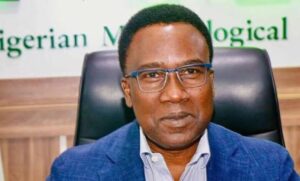In February 2024, the Director General of the Nigeria Meteorological Agency (NiMet), Prof. Charles Anosike, launched an audit to evaluate the state of the agency’s air quality monitoring stations. This nationwide audit uncovered serious problems that threaten the protection of public health.

The audit findings paint a troubling picture. Many air quality monitoring stations across Nigeria have been neglected, poorly maintained, or suffer from equipment failures, making it nearly impossible for NiMet to gather accurate air quality data. The audit revealed specific issues, such as unfinished projects, missing equipment, and the negative impact of unreliable power supplies, which severely hamper the stations’ operations.
The audit was led by Mrs. Olumide Olaniyan, General Manager of NiMet’s Air Quality Monitoring Unit. She reported that, apart from newly installed stations in Sokoto and Yola, most of the facilities are in a “deplorable state.” These problems make it difficult for the agency to fulfill its critical role in monitoring air quality.
For instance, stations in Kano and Enugu were found to have missing equipment and uncompleted projects. Additionally, frequent power outages and a lack of adequate backup systems have further disrupted the operations and damaged sensitive equipment.
The audit’s report highlighted these issues, noting that the poor state of the monitoring stations greatly compromises NiMet’s ability to carry out its mandate effectively. However, the report also acknowledged that the current administration is taking steps to address these challenges. These steps include upgrading equipment, providing staff training, and increasing funding.
Prof. Anosike emphasized the importance of conducting the audit to gain a clear understanding of the equipment’s condition within the agency. He mentioned that the audit was conducted as part of the 5-point agenda set by the Honourable Minister of Aviation and Aerospace Development, Festus Keyamo, SAN. This agenda aims to ensure strict compliance with safety regulations and to improve Nigeria’s standing with the International Civil Aviation Organization (ICAO).




